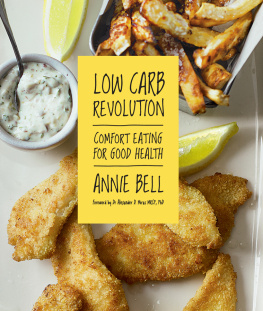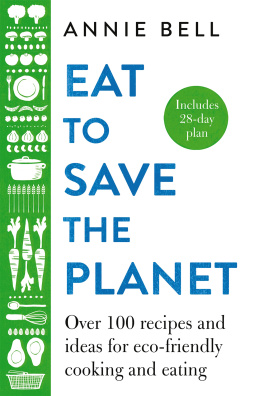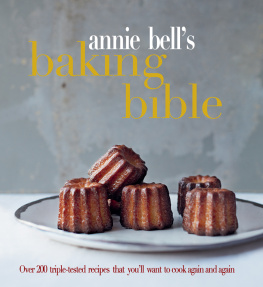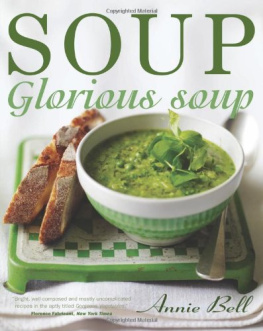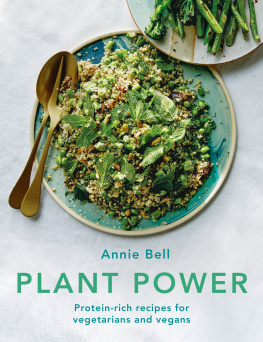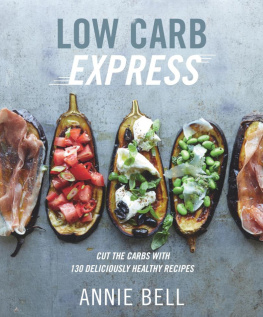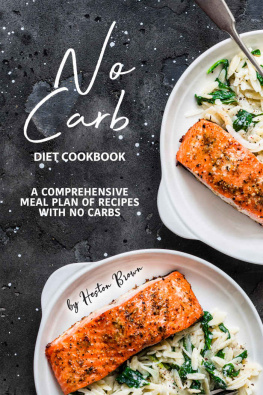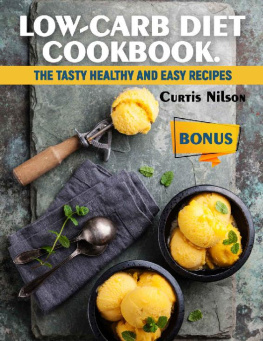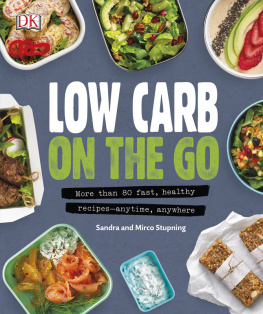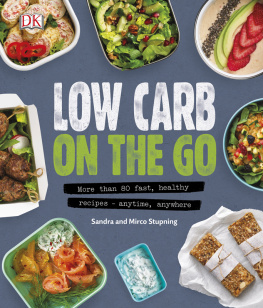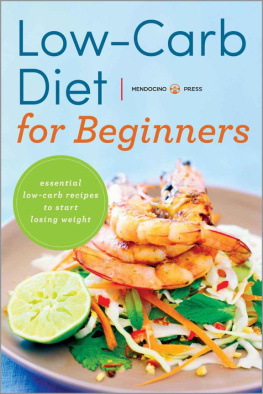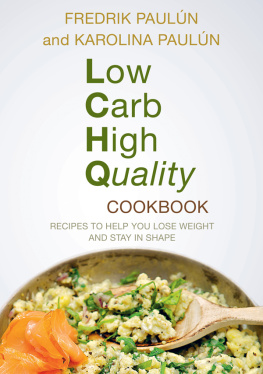Annie Bell - Low Carb Revolution
Here you can read online Annie Bell - Low Carb Revolution full text of the book (entire story) in english for free. Download pdf and epub, get meaning, cover and reviews about this ebook. year: 2020, publisher: Hachette UK, genre: Home and family. Description of the work, (preface) as well as reviews are available. Best literature library LitArk.com created for fans of good reading and offers a wide selection of genres:
Romance novel
Science fiction
Adventure
Detective
Science
History
Home and family
Prose
Art
Politics
Computer
Non-fiction
Religion
Business
Children
Humor
Choose a favorite category and find really read worthwhile books. Enjoy immersion in the world of imagination, feel the emotions of the characters or learn something new for yourself, make an fascinating discovery.
- Book:Low Carb Revolution
- Author:
- Publisher:Hachette UK
- Genre:
- Year:2020
- Rating:4 / 5
- Favourites:Add to favourites
- Your mark:
- 80
- 1
- 2
- 3
- 4
- 5
Low Carb Revolution: summary, description and annotation
We offer to read an annotation, description, summary or preface (depends on what the author of the book "Low Carb Revolution" wrote himself). If you haven't found the necessary information about the book — write in the comments, we will try to find it.
Low Carb Revolution — read online for free the complete book (whole text) full work
Below is the text of the book, divided by pages. System saving the place of the last page read, allows you to conveniently read the book "Low Carb Revolution" online for free, without having to search again every time where you left off. Put a bookmark, and you can go to the page where you finished reading at any time.
Font size:
Interval:
Bookmark:




Select one of the chapters from the and you will be taken straight to that chapter.
Alternatively, jump to the to browse recipes by ingredient.
Look out for linked text (which is blue) throughout the ebook that you can select to help you navigate between related sections.
You can double tap images to increase their size. To return to the original view, just tap the cross in the top left-hand corner of the screen.
Weight loss through caloric restriction has attracted an enormous interest, both from the public and the dieting industry, because of the profound rise in the incidence of obesity in many parts of the globe. Even though dieting works very well in the short term, the longer term results are disappointing, with only a minority actually achieving sustained weight loss. This outcome can be very frustrating for the dieter who wants to improve their health and well-being. Whilst it is often easy for healthcare professionals to blame the individual for lack of willpower, to date calorie restriction has failed to solve the problem of obesity and its associated diseases. Diet failure is almost the natural result of a number of physiological mechanisms resisting fat loss, which is associated with an evolutionary disadvantage. In fact, considering the calorie-dense environment we all live in, our genetics and the hormonal mechanisms that control our body weight, it is very surprising how up to 20% of dieters do manage to maintain their weight loss, and why even more people arent obese!
A more successful approach to dieting has been to change the macronutrient composition (ie proportion of protein, fat and carbohydrates) of what we eat. The best available evidence so far tells us that weight loss and/or maintenance can most readily be achieved through the consumption of a diet which is high in protein and low in carbohydrates. What is very interesting is that participants in these clinical research trials were allowed to eat as much as they wished, as long as they got the macronutrient balance right. The reasons as to why diets high in protein can be more effective are not fully clear yet, but further research has shown that they are particularly good at reducing hunger and increasing fullness.
I was very interested to find that Annie Bell, the author of this book, came to the same conclusion through real-life experiences and research. These experiences provide much needed support to the sometimes sterile findings of a research trial or experiment. Her approach in this book is very different to the previous literature; she has developed recipes that can be readily introduced into daily cooking and adopted as a completely normal way of eating, rather than an uphill struggle. I enjoyed reading the recipes and endorse this novel and exciting approach to eating. I hope that the readers of the book also find the recipes delicious and satisfying, whilst benefiting from better health and overall well-being.
Dr Alexander D.Miras MRCP, PhD
Clinical Lecturer in Metabolic Medicine, Imperial College, London
When I went through a period of appetite loss a couple of years ago, I had no idea it was the beginning of a long journey that would change the way I look at food and how I eat. At a professional level, for every recipe I devise for salad I probably devise at least ten for cakes, and as far as diets are concerned, I am more of a voyeur than a participant. So it has been a journey through uncharted territory.
If I travel back to my childhood, I was never a beanpole. My mother saw to it that I carried enough weight to cope with an emergency, even though that never extended beyond a class epidemic of chickenpox. I think, quite simply, she loved to feed us, and I too am guilty of this with others. I can still recall with some nostalgia the taste of the spoonful of malt extract that was provided as insurance after breakfast during the winter. But as Im not someone who can eat whatever they want without consequence, I arrived in my late teens with enough emergency supplies to cope not only with my own chickenpox but that of several others as well.
This wasnt a problem. With enough late nights, cigarettes, tangled love affairs and whatever else, it disappeared. But, as I progressed through my thirties, a couple of children and then my forties, there was an incipient weight gain. Or, as a friend once remarked when Mad Men mania swept through the high street, fashions made for you this summer. I think she meant it nicely. Though if I was on the curvy side I was also quite happy with it. I could see enough pluses, and, as someone who has always suffered from emotional appetite loss, I figured there was in any case probably something round the corner that would take care of it. Anything that involved family members and hospitals, and I could guarantee I would be several kilos lighter a few weeks down the line. But, the reality was, that as soon as my appetite returned to normal the weight would start creeping back on again, just as surely as bust follows boom.
Then, however, after one such period of quite severe appetite loss something changed. The only foods I had been able to face for weeks (or months) on end were roast chicken and vegetable soup, and in small quantities; my idea of comfort food at the time. It wasnt until the end of this episode that it occurred to me that I had inadvertently given up starchy carbohydrates, and by this stage I had actually lost my taste for them. My appetite was up and running again, but my natural inclination was to indulge in lots of roasts and fish, and all my favourite vegetables and seasonal fruits. I also realised that a whole host of niggling discomforts had simply disappeared. I felt better, more energised, satisfied after eating but never overfull, and I could eat any amount without feeling that sense of regret that comes with I wish I hadnt eaten that. In short, it felt right and natural.
And so I decided to continue eating this way, to ditch the bread, the potatoes, the pasta and rice that I would once have eaten as an accompaniment and see how I got on. Over two years down the line, as well as still loving this way of eating I continue to be amazed that despite eating heartily far more than I ever used to and at times more than my husband my weight hasnt increased by so much as half a kilo. That constancy gives me huge pleasure, and a sense of security that has come as a surprise. And it left me feeling that if it really is that easy, I ought to be passing it on.
If I had inadvertently arrived to worship at the altar of Low Carb, there were any number of others who had got there before me. As a means of weight loss it has hardly been out of the news since Dr Robert Atkins launched his book Dr Atkins Diet Revolution in 1972. But for those, like me, who grew up on the receiving end of the governments food pyramid, it still represents a seismic shift in thinking.
The governments proposed ideal diet at the end of the twentieth century had us all stuffed with starchy complex carbohydrates such as pasta, potatoes and bread, the base of a pyramid, with just a little in the way of protein that occupied the tip, and more or less the same amount of dairy, with fruit and veg filling in the middle section. It may have worked for a few, but not many, and in effect supported the carb-heavy popular food culture that exists today, which we now know to be responsible for so much obesity.
Font size:
Interval:
Bookmark:
Similar books «Low Carb Revolution»
Look at similar books to Low Carb Revolution. We have selected literature similar in name and meaning in the hope of providing readers with more options to find new, interesting, not yet read works.
Discussion, reviews of the book Low Carb Revolution and just readers' own opinions. Leave your comments, write what you think about the work, its meaning or the main characters. Specify what exactly you liked and what you didn't like, and why you think so.

